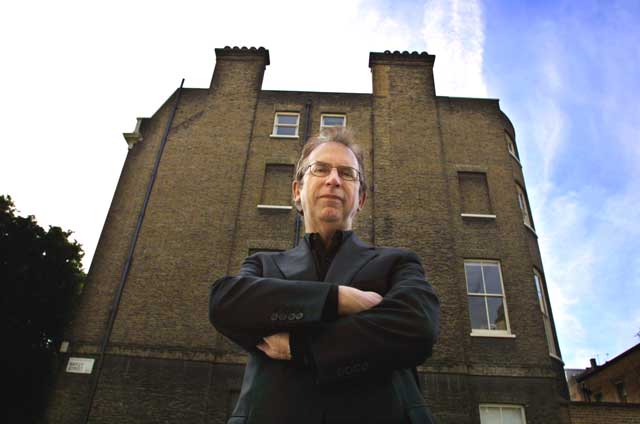Parrot and Olivier in America, By Peter Carey

Your support helps us to tell the story
From reproductive rights to climate change to Big Tech, The Independent is on the ground when the story is developing. Whether it's investigating the financials of Elon Musk's pro-Trump PAC or producing our latest documentary, 'The A Word', which shines a light on the American women fighting for reproductive rights, we know how important it is to parse out the facts from the messaging.
At such a critical moment in US history, we need reporters on the ground. Your donation allows us to keep sending journalists to speak to both sides of the story.
The Independent is trusted by Americans across the entire political spectrum. And unlike many other quality news outlets, we choose not to lock Americans out of our reporting and analysis with paywalls. We believe quality journalism should be available to everyone, paid for by those who can afford it.
Your support makes all the difference.Peter Carey has a taste for odd couples. From Oscar and Lucinda by way of Jack Maggs to Theft, they pop up in a variety of guises. In his latest novel, set in the early 19th century, Olivier de Garmont is a young aristocrat from an ancient family struggling to find a place for itself in France after Napoleon. The morally flexible Parrot is older, English and cheerfully plebeian.
After the July Revolution of 1830, Paris is not a friendly place for a man with Olivier's pedigree. To keep him out of harm's way, his formidably protective mother arranges for him to visit America to compile a report on US prisons. Naturally, the Countess wants someone to keep an eye on him. Who better than Parrot, factotum of the battered old marquis who is her particular admirer? Parrot is hired as secretary-cum-servant - but his position is not wholly inferior because the Countess makes him the co-signatory of her son's bank account in America.
Here is the narrative framework for what is, on one level, a picaresque novel dominated by the interplay between master and man. So far, so Don Quixote. But Peter Carey likes to put his own spin on other people's stories. Olivier is loosely modelled on Count Alexis de Tocqueville, whose Democracy in America has become the classic analysis of the young republic's strengths and weaknesses. De Tocqueville, like Olivier, visited America after the July Revolution, ostensibly to study its jails, though his travelling companion was a man of his own background rather than a servant.
Olivier and Parrot come together in uncomfortably close quarters on the voyage to New York. After they land, Olivier shows a desultory interest in prisons but soon finds that his real subject is America itself. He falls in love with Miss Amelia Godefroy, a "straw-haired, blue-eyed, straight-backed" American beauty.
Parrot has brought his own romantic entanglement with him in the shape of his artist mistress; and she has brought her mother. He ends up in jail after an incident involving his master's pistol. Gradually, more of his past emerges - notably a trip to Australia in a convict ship, his years in a penal settlement and the reappearance of the marquis. As they tour the United States, the relationship between the two men changes into a form of friendship partly based on mutual incomprehension. Parrot and his mistress build a new life in America. Olivier must face the question of whether what this newfoundland and the alluring Miss Godefroy have to offer would be worth the loss of his old life and his inherited privileges.
Carey's novel builds a picture of America, his own adopted homeland, seen through a glass darkly from a fictional version of the 1830s. Its mainspring is the dialogue that develops between Parrot and Olivier. Parrot is pragmatic, a natural republican, and resourceful. Olivier, a faintly ridiculous child of the ancien regime, judges what he sees and whom he meets by aristocratic and European criteria; and yet is too intelligent, and in some ways too generous, not to ignore the virtues of both this brash, alien country and his irredeemably vulgar fellow traveller.
This is one of the strongest points of the novel: the reader never quite loses sympathy with Parrot or Olivier. Another of its virtues is Carey's wonderfully witty and visual prose, which springs surprise after surprise on the reader. A third is that his version of 1830s America allows him to comment on its modern counterpart: he touches lightly on, among many other things, sub-prime mortgages, an inflated art market and demagogic politicians.
That said, the novel leaves behind a sense of unfinished business. The whole is rather less than the sum of its parts. Perhaps there's a little too much concept here. The fictional elements take second place to the ideas. The characters are brightly coloured and grotesquely lifelike puppets defined by their thoughts as much as feelings, and it's hard to engage with them other than intellectually. There's nothing intrinsically wrong with that, of course, and this is a book full of good things. But Carey has written better.
Andrew Taylor's latest novel is 'Bleeding Heart Square' (Penguin)
Join our commenting forum
Join thought-provoking conversations, follow other Independent readers and see their replies
Comments